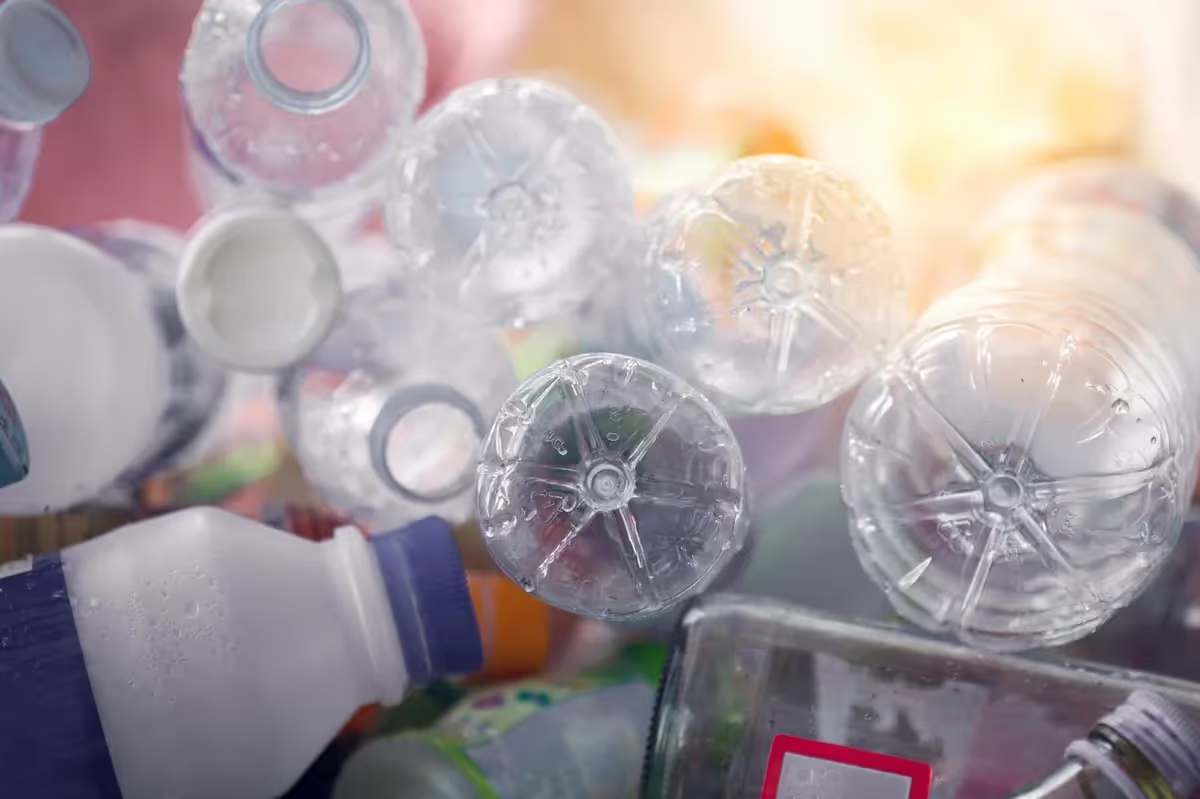How you can help end plastic waste in your own home
Overview
Recycling is a great way for individuals to help end plastic waste together. Plastic recycling creates raw materials for new products, providing a sustainable and low-carbon alternative to making new plastic.
Recyclable or hard-to-recycle plastics
The most widespread recycling process is mechanical recycling. This involves sorting, shredding, washing, and melting plastic waste to form pellets, which are remoulded into new products.
Items made from PET, HDPE, and PP—such as bottles, milk cartons, yoghurt pots, and take away trays—are the most common types of plastic that can be recycled.

However, not every plastic can be processed at conventional mechanical recycling facilities. There are many reasons why they may present a challenge: some centres do not have the equipment to melt and remould certain types of used plastic; others separate during melting, forming structural weaknesses; and some require additional processing.
It can be tricky to remember which plastics are recyclable. A resin identification code can help: this is a number from 1 to 7 in a triangle of looped arrows, often stamped on an item’s base. Generally speaking, the lower the number, the easier the plastic is to recycle.
The most commonly recycled plastics are:
- Type 1 - PET (plastic bottles)
- Type 2 - HDPE (milk cartons)
- Type 5 - PP (yoghurt pots)
Specialist facilities can also process:
- Type 3 - PVC (shampoo bottles)
- Type 4 - LDPE (baskets)
- Type 6 - PS (foam cups)
Type 7 includes all other plastics, such as the composites used to make airtight food packaging. These face an additional challenge to recycle, and require technology such as chemical recycling, to be broken down at a molecular level.
Hard-to-recycle items to leave out of your household recycling box include salad bags, plastic film, and polystyrene. Some supermarkets offer specialist recycling collection for these items, so do check your regular outlet for more information.
It is best to check which plastics your local authority collects, as an item having code 1, 2, or 5 is not a cast-iron guarantee that they will be recycled.
Preparing recyclables for collection
Contamination can result in entire loads of recyclables being rejected and sent to landfill or incineration. This is a particular problem for single-stream recycling (in which all recyclable materials are collected together), as leaking substances can contaminate other materials in the load.
Containers with significant amounts of food, such as half-full yoghurt pots, must be emptied. However, recyclables do not need to be spotless; traces of food, adhesive, and labels are burned off during the heating process. A quick rinse is usually sufficient preparation.

Other actions that make recycling easier include avoiding bagging items (which complicates machine sorting), squashing bottles to prevent them rolling off the conveyor belt, and removing non-recyclable components such as film or pumps.

Check your local recycling options
Local authorities, states, and countries have distinct sets of rules for collecting recyclables. These rules specify which plastics can be recycled, where to leave them for collection, and whether they should be sorted by type.
Recycling policies are largely influenced by a region’s access to material recovery facilities. In Cardiff, Wales, for example, the city council uses single-stream collection to make recycling as easy as possible, while Powys County Council, just an hour and a half down the road, lacks the facilities to sort mixed recyclables so residents must sort their own.
National governments may also introduce stricter rules in an effort to reduce waste. For instance, while Austria has a blanket ban on certain types of waste going to landfill, Switzerland’s ‘polluter pays’ policy requires households and businesses to pay for non-recycled waste they produce.

Recycling in the community
Recycling is often seen as an individual responsibility, but promoting recycling in the community can amplify its environmental benefits.
Writing to or speaking with political representatives is one of the most direct ways to push for improved recycling infrastructure, such as more public recycling bins or collection points for specialist recycling. Volunteering to help with a local clean-up can be a fulfilling and social way to tackle plastic waste while protecting the environment.
Join us in our Clean4Change movement, a campaign powered by the Alliance to End Plastic Waste, and start your cleanup journey today!
With the right systems in place, small actions can make a big difference.
Stay in the loop
Subscribe to our newsletter for the latest news and updates from the Alliance












